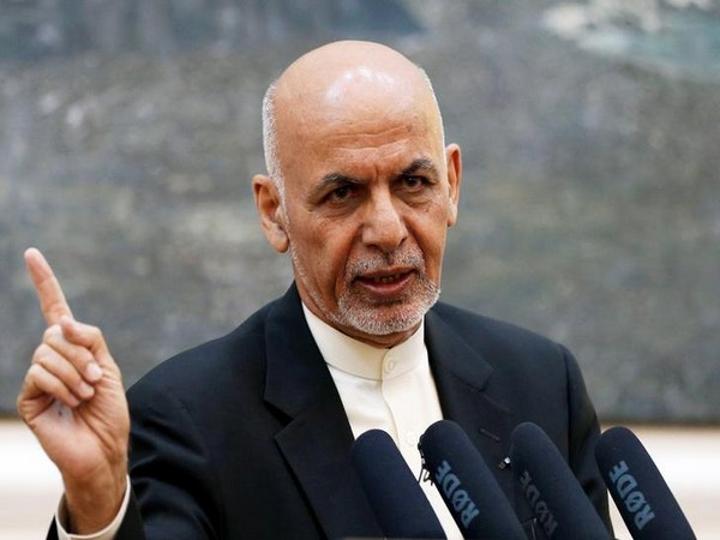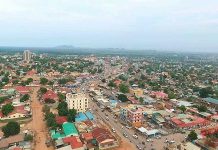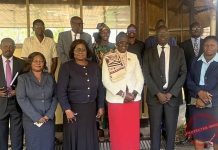Africa-Press – South-Sudan. Last week exposed the pain and the distress Afghan refugees and displaced people are going through. News media showed an Afghan mother giving birth to a baby while running for her life. An Afghan elder man was escorted by a US serviceman and gave the old man a drinking bottle of water and put him on a cargo ship. A young Afghan boy received a warm greeting from dedicated servicemen while crying. These things appeared before the terror attacked the Kabul International Airport that made a unique challenge to the rescued US servicemen.
Historically, Afghanistan, like South Sudan, has been at war for decades. In late 80s and early 90s, Afghanistan went through internal military and political crises, which fitted the West in her support against the Eastern Bloc. When the nation of Afghanistan paused a bit from wars, the Taliban leaders invited a terror group led by Osama B. Laden, who sponsored an operation that killed almost 3,000 innocent Americans in 2001, which indeed led to almost 20 years war against Talibans after Taliban regime refused to hand the terror leader over to the United States for a trial.
It is true that Afghanistan has the second large refugee and displaced population behind Syria, according to the UNHCR (2021). There are 2.6 million registered Afghan refugees in the world, of whom 2.2 million are registered in Iran and Pakistan alone. Another 3.5 million people are internally displaced, having fled their homes searching for refuge within the country. In light of the rapidly deteriorating security situation in 2021, the number of people fleeing Afghanistan will likely continue to rise. Afghanistan has indeed suffered for more than 40 years of conflict, natural disasters, chronic poverty and food insecurity. Facing an ongoing humanitarian crisis, the resilience of refugees, internally displaced people and host communities is slowly reaching its limit.
The Afghanistan populations is 40m (2021). The UNHCR and other international agencies roles in Afghanistan focus mainly on protecting the most vulnerable and assisting newly displaced Afghans with life-saving shelter, food, water and core relief items, both within Afghanistan and neighboring countries. This was before the fell of Kabul, Afghanistan government last month (August, 2021). South Sudan, on the other hand, ranks third behind Afghanistan in terms of displaced refugees. There are currently 4.3 million displaced people from South Sudan, including refugees, IDPs, and asylum-seekers. 63% of refugees from South Sudan are children. 1.6 million South Sudanese are in neighboring countries such as Uganda and Sudan, both host over 800,000 refugees from South Sudan, totaling to over half of all South Sudanese refugees. Yet the population in South Sudan is 11.4m (2021) in comparison to Afghanistan (40m, 2021) though the “new nation” has the highest refugee and displaced persons in Africa.
This analysis is not whether it is fair or unfair to compare the situations and the crises these two unsuccessful nations are going through. It is whether there is an extraordinary lesson to be learned in these situations. Though comparing the two nations through current crises may not eliminate the circumstances citizens of these countries face, especially the displaced refugees, I think it is imperative to discuss the lessons that could be learned through these country crises. I warn the debaters to avoid personalization when discussing arguments because the moment a person attacks individual or group characters and not policies and programs, the moment the debater loses the logic of the argument.
I equally know that crises as such bring two things: first, crisis allows people to think of better and meaningful ways to tackle the root causes of the crisis predicament. This new thinking is always needed most of the time since people do not usually give room to a new thinking because new thinking brings critical changes while most human beings fear changes more than anything else during their lifetimes even though changes are not always bad.
Second, crises redirect resources (both humans and materials) to where they could be placed for better and greatest use. Resources are some of the core reasons humans are in constant crises for generations. Afghans and South Sudanese are marginalized, displaced, raped and murdered, etc., just by few who like to own what are left in their countries. Take South Sudan, for example, it had been at war more than Afghanistan for generations. First, it was fighting fitted South Sudanese against Northerners. Now, it is South Sudanese themselves fighting and displacing their innocent people.
The causes for these wars are the controls of the powers and resources (both humans and materials), as well as the lack of credible leadership with a national vision for the country. Lands and religious concepts might have played destructive roles as well until South Sudanese opted for an Independent South Sudan, hoping “the new country” choice for self-independence will mitigate citizens’ sufferings and will allow them to have what they called “home” in quotation marks with its natural resources. Was this a done deal initiative with such an effort? The answer is probably not. Yes, it is a good thing to have a place called home, but it is also important to know that home is not just a land with its uncultivated natural resources.
Home is home only when it meets certain standards. Home must make the owner feel safe since lack of safety at home is always a meaningful reason for a citizen to escape for survival. Home should enable a person to thrive and aim highest for a success and that of those the person loves. When basic needs are not met at home, and opportunities are far from realizations, it is always advisable for one to seek for a durable solution even if it would mean living the only home one knows and loves or stands against injustices. This is why Afghans and South Sudanese are seeking refuge elsewhere rather than remaining at homes that do not guarantee their safety.
Afghan displaced refugees are experiencing this manmade crisis at this critical moment. We feel your pains! The whole world is feeling your pains. I know some of you are worrying about your loved ones. As we saw last week, a terrorist attack at the Kabul International Airport killed many innocent people including children, elderly and disable people. One cannot imagine what it would be like after the last US servicemen left the country and the public scene. It is going to be difficult, and I personally support those who decided to leave the Taliban guns’ home for a safe place elsewhere. I understand why some people blame the US government for leaving some of your family members in limbos. Though I am not in a business to argue for or against the US departing the Afghanistan, I am here with a notion that anything comes for a reason. Maybe this is a time to rethink of the Afghanistan differently instead of the past perspective approaches!
There is always a reason, and if one responds in kind, there can be an acknowledgement of the logic behind the move. I know the US lost the lives of extraordinary servicemen since 2001. The US spent more than $1Trillion dollars, according to the government reports (2021). It will be 20 years this month (Sept, 2001) when the US and the alliances started war against Taliban’s regime. Like Afghans, my South Sudanese are forced out by their own Talibans in Juba, South Sudan, a defunct regime that will expire in a few days subsequently, and since it is not doing anything to save the lives of innocent South Sudanese, it will cease. Innocent people in South Sudan are killed, raped, displaced from their homes to refugee camps in neighboring countries and in protected UN locations in the country (South Sudan).
In summary, South Sudanese have been living under unsafe conditions since 2013, and yet the defunct Taliban regime in Juba is not doing anything to address their needs. Like young Afghanistan girls and women, who are worrying for their future, number of South Sudanese children have not been attended schools for the last seven and half years. What a waste of future human capitals! There is no future for this South Sudanese generation. Like some of my Afghan intellectuals, South Sudanese intellectuals are likewise blaming Western partners, especially the United States government (s), for not doing enough of what they called,” right thing” by removing Juba Taliban regime in South Sudan to save innocent lives! Could American governments have done any difference in South Sudan and in Afghanistan to reverse sufferings of the citizens inflicted by both Taliban regimes in two countries, you be the judge!






